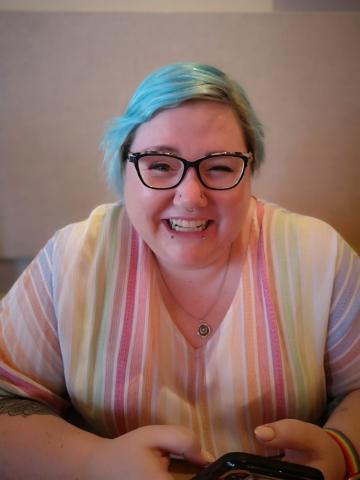We need to decide, daily and in every situation, that we are actively anti-racist.

Learning
Many White people think that since they have “decided” that they are not racist, that they aren’t. That’s not really how it works. Since White supremacy and colonialism have baked themselves into our lives, our culture, and our communities, we need to decide, daily and in every situation, that we are actively anti-racist.
Being anti-racist isn’t just the big, visible, public actions that need to happen to fight against racism. As the United Church, we are called to make large statements of anti-racism, including writing to the premier of Manitoba to search the landfills for Missing and Murdered Indigenous Women and Girls. These large actions are important and can be public displays of how we are living out our commitment to becoming an anti-racist church.
But anti-racism is also the small things, the everyday combatting of prejudices and discrimination. The smaller acts are where our foundation is built. The small conversations advocating against microaggressions, and counteracting the talking points of White supremacy. This would include correcting your grandmother when she uses a racist term. Asking your co-worker to explain the racist joke that they just told, asking them to tell you why it was funny. And taking courses and learning about anti-racism so that you can be a better ally.
This work can be exhausting. But if you find it hard, if you find it too much and hear the call to let things slide, remember that this is about human rights. Challenging a racist joke may be hard for some of us White people. That is going to be uncomfortable. But, living with the reality of systemic racism and daily microaggressions and ongoing racial discrimination is particularly hard for Indigenous and racialized peoples. Our society is built on White supremacy and colonization. This is a daily devotion to make sure that all people receive the respect that they deserve. No work is so small as to not be worth it—it is always worth fighting against oppression.
Faith Reflection
Prayer
God, we hold in prayer the work that we must do to ensure that all humans are given the respect that they deserve.
We acknowledge our biases, both explicit and implicit, and the systemic way that biases support disadvantaged outcomes for Indigenous and racialized peoples.
We know that we have come a long way, but also know that we have a long way to go.
Thank you, God, for meeting us where we’re at and not leaving us there.
Amen.
Living It Out
There are many free online courses that you can take that help teach the history of our country and the ways in which injustice has been perpetrated on Indigenous and racialized people. They can help us, and particularly White people, on our path of anti-racism to expand our knowledge on things that we will never personally experience. Here are two examples:
- A 12-lesson starter course from the University of Alberta called Indigenous Canada explores historical and contemporary perspectives of Indigenous peoples and highlights national and local Indigenous‒settler relations.
- I would also suggest taking the Government of Canada’s online Gender-based Analysis Plus course. This course is an analytical process used to assess how different women, men, and gender-diverse people may experience policies, programs, and initiatives. The course goes over intersectionality, a concept that explains the interconnected nature of social categorizations such as race, class, and gender as they apply to a given individual or group, which creates overlapping and interdependent systems of discrimination or disadvantage. The term “intersectionality” was coined by Kimberlé Crenshaw, a Black woman and academic who outlined the differences between and with the overlapping identities that Black women face.
These terms and concepts can seem big and scary, but they affect our daily lives.
Take some time to educate yourself and expand your mind!
—M Chorney (she/they) is a policy analyst within the civil service of the Manitoba Government, a member of the General Council Executive and the Prairie to Pine Regional Executive, and the Communications Coordinator for Affirm United. They live on Treaty One Territory with their loving spouse, and they love reading, learning, and laughing.